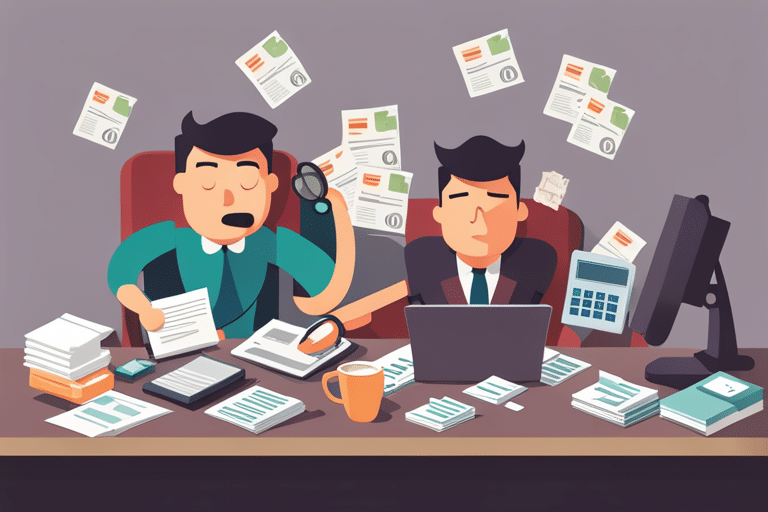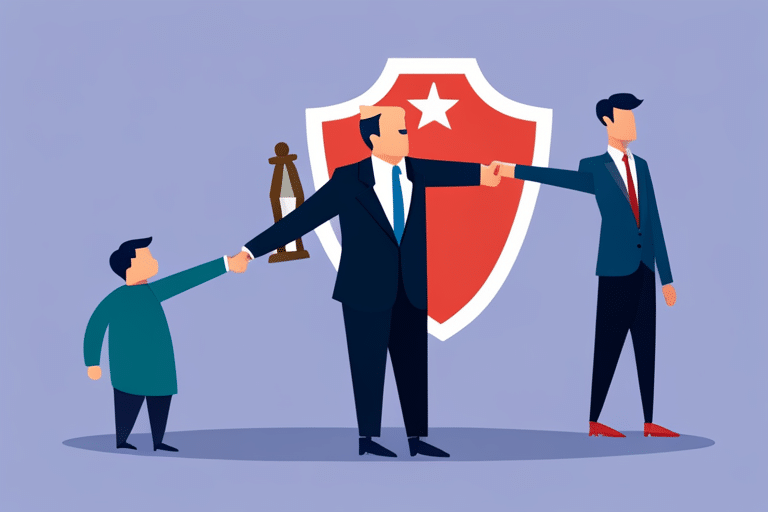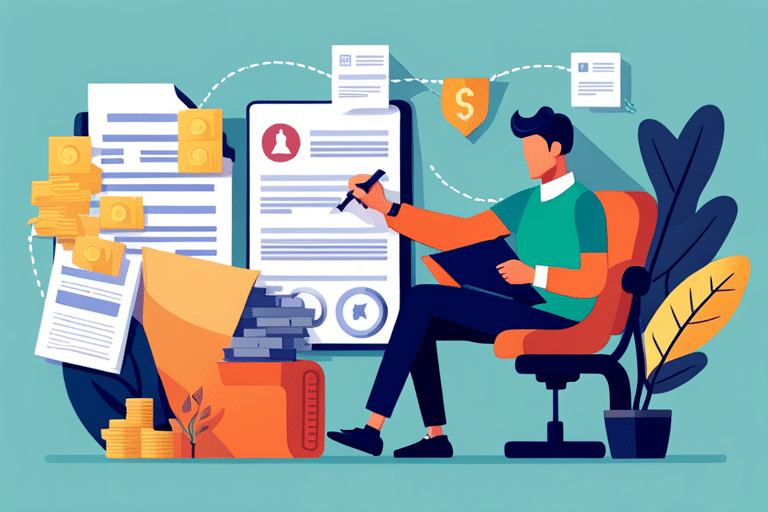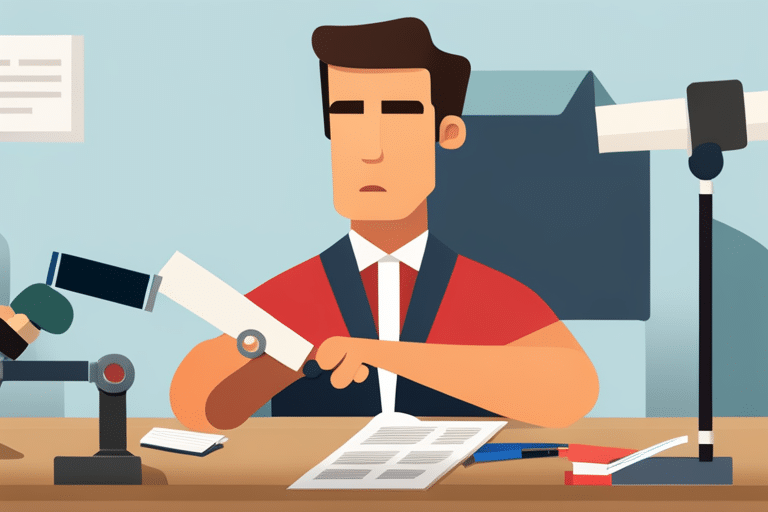Are you ready to take control of your financial situation? Brace yourself, because in this article, we’re going to reveal the secrets to handling debt collectors like a pro and knowing your rights inside out.
No more feeling helpless or overwhelmed when those intimidating phone calls start pouring in. We’ve got your back.
Get ready to learn how to navigate the murky waters of debt collection with confidence and emerge victorious on the other side. Let’s dive in!
Key Takeaways
- Understanding debt collection laws and regulations is crucial in order to know your rights and protections as a debtor.
- Assessing and evaluating your debt situation is important for creating a budget and dealing with the emotional impact of credit card bills and collection calls.
- Knowing how to deal with harassment and unfair practices from debt collectors, such as protecting your personal information and asserting your legal rights, is essential.
- Establishing clear communication boundaries with debt collectors and negotiating a repayment plan based on your financial limitations can help manage the debt effectively.
Understanding Debt Collection Laws

It’s important to understand debt collection laws before dealing with debt collectors. After all, you don’t want to find yourself in hot water without a paddle, do you? So let’s dive right into it and unravel the mysteries of assessing debtors’ rights and understanding the debt collection process.
Now, when it comes to assessing debtors’ rights, it’s like playing a game of hide-and-seek. Except instead of hiding behind trees, you’re hiding from those pesky collectors who are determined to get their hands on your hard-earned cash. But fear not! The law is on your side. Debt collectors must follow certain rules and regulations when trying to collect what they believe is owed to them.
Next up, understanding the debt collection process is essential for keeping your sanity intact. It’s like deciphering an ancient code – except instead of finding hidden treasure, you’re trying to navigate through piles of bills and letters that seem to multiply overnight. Remember, knowledge is power! Knowing the ins and outs of how debt collection works can give you a leg up in negotiating with those persistent collectors.
Assessing Your Debt Situation

Take a moment to evaluate where you stand with your outstanding financial obligations. It’s time to face the music and assess your debt situation. Don’t worry, we’re here to help you navigate through this tricky terrain with some lighthearted humor and expert advice.
Here are three things that might evoke an emotional response in you:
-
The sight of your credit card bill: Cue the dramatic music! Opening that envelope can feel like watching a suspenseful movie. Will it be good news or bad news? Take a deep breath and prepare yourself.
-
The sound of collection calls: Ring-ring! Ah, the sweet melody of debt collectors trying to reach you. It’s like having your own personal concert, but instead of enjoying it, you’re left feeling anxious and stressed. Time to take control!
-
The taste of instant noodles for dinner…again: We all love a good instant noodle meal once in a while, but when it becomes a daily affair due to financial constraints, it loses its charm. Your taste buds deserve better!
Now that we’ve evoked some emotions (hopefully not too many tears), let’s get down to business. Assessing your debt situation is the first step toward taking control of your finances. Start by gathering all your financial statements and creating a budget that suits your needs and goals. Remember, mastering this process will not only alleviate stress but also empower you to make informed decisions about your future financial well-being.
Recognizing Your Rights as a Debtor

Hey there, savvy debtor! Ready to dive into the fascinating world of your rights? Buckle up because we’re about to explore Debtor Legal Protections, Recognizing Harassment Tactics, and how to confidently Assert Your Rights.
Get ready to outsmart those debt collectors and come out on top with a smile on your face (and money in your pocket)!
Let’s get started!
Debtor Legal Protections
Knowing your debtor legal protections can help you navigate interactions with debt collectors. So, let’s dive into these magical shields that will make those pesky collectors disappear faster than a rabbit in a hat! Here are three powerful tricks up your sleeve:
-
The Fair Debt Collection Practices Act (FDCPA): This spellbinding law protects you from abusive, deceptive, and unfair practices by debt collectors. Abracadabra, no more harassment!
-
Debt relief options: Ta-da! These enchanting options include debt consolidation, bankruptcy, and debt settlement. Choose the one that suits your needs and watch as your debts vanish into thin air.
-
The Debt Settlement Process: Prepare to be amazed as this dazzling process allows you to negotiate with creditors to settle your debts for less than what you owe. It’s like pulling a rabbit out of a top hat!
With these mystical debtor legal protections on your side, you’ll feel like a master magician when facing those relentless debt collectors. Now go forth and charm them away!
Recognizing Harassment Tactics
When faced with relentless debt collectors, you may feel overwhelmed by their persistent and aggressive tactics. They seem to have an uncanny ability to track you down no matter where you hide. It’s like they have a sixth sense for sniffing out people who owe money. But fear not, my friend, for there are ways to deal with these aggressive collectors and protect your personal information.
First off, never give them your social security number or any other sensitive details over the phone. Instead, ask for their contact information and tell them you’ll call them back after doing some research. This will buy you time to verify the legitimacy of their claims and ensure your personal data remains secure.
Now that you know how to keep those pesky collectors at bay, let’s move on to asserting your rights against them.
Transition: Armed with the knowledge of protecting yourself from aggressive collectors, it’s time to take things up a notch and learn about asserting your rights in the face of harassment.
Asserting Your Rights
To stand up for yourself against aggressive debt collectors, it’s essential that you understand the laws surrounding harassment and know how to assert your rights. Don’t worry, we’ve got your back! Here are three powerful ways to fight back and show those pesky collectors who’s boss:
-
Educate yourself: Knowledge is power, my friend. Take the time to familiarize yourself with your legal rights when it comes to debt collection. Understand what constitutes harassment and know the boundaries they shouldn’t cross.
-
Be confident: Remember, you have every right to assert your legal rights. Stand tall, speak up, and don’t let them push you around. You’ve got this!
-
Document everything: Keep a record of all communications with the collectors—dates, times, names—everything! This way, if things escalate or get out of hand, you’ll have a solid case on your side.
Now that you’re ready to take on those aggressive collectors like a champ, let’s move on to establishing some communication boundaries…
Establishing Communication Boundaries

Setting clear communication boundaries with debt collectors is crucial in order to protect your rights and maintain control over the conversation. We’ve all been there, receiving relentless phone calls from aggressive collectors who seem to have a mission to drain every ounce of patience from our souls. But fear not, for you hold the power to establish boundaries that will make these collectors think twice before crossing the line.
First and foremost, remember that you are in charge. Don’t be afraid to assert yourself and set limits on how and when debt collectors can contact you. Politely inform them of your preferred method of communication – whether it’s through email or snail mail – and let them know when it’s convenient for you to discuss matters related to your debt.
If these persistent individuals continue their aggressive tactics despite your efforts, don’t despair. Take notes of each interaction, noting down dates, times, names, and any inappropriate behavior displayed by the collector. This documentation will serve as evidence should you need it later on.
Verifying the Debt

It’s important to gather all relevant information and documentation in order to verify the legitimacy of the debt. So, you’ve received a letter or a call from a debt collector claiming that you owe them money. Before you start panicking and emptying your piggy bank, take a deep breath and follow these steps to validate the debt:
-
Thoroughly review the details: Look closely at any paperwork or communication you have received regarding the alleged debt. Check for discrepancies, incorrect dates, or any other red flags that might indicate something fishy.
-
Request proof: Don’t be shy! Ask the debt collector to provide validation of the debt. They should be able to provide you with documentation such as loan agreements or statements showing your payment history.
-
Do your research: Take some time to investigate if there are any statute of limitations on collecting this type of debt in your state. Debt collectors have a limited window of opportunity, so make sure they’re not trying to pull one over on you!
Negotiating a Repayment Plan

When negotiating a repayment plan, make sure to clearly communicate your financial limitations and propose a realistic payment schedule.
Now, I know what you’re thinking – negotiating with debt collectors may sound about as fun as getting a root canal without anesthesia. But fear not, my financially savvy friend! With a little creativity and a pinch of humor, you can turn this daunting task into an opportunity for growth.
First things first, be upfront about your financial situation. Don’t be afraid to show them the numbers and explain your limitations. Remember, they’re not mind readers (although that would make life so much easier). By being open and honest, you’ll gain their respect and increase your chances of finding common ground.
Next, explore all possible repayment options. Debt collectors are often open to alternative arrangements that suit both parties involved. Maybe they can offer you more time to pay or lower interest rates. It’s like playing chess – think three moves ahead and consider different scenarios.
Lastly, don’t forget about payment flexibility. Life happens, unexpected expenses pop up like Whac-a-Moles at a carnival game. So when discussing terms with debt collectors, ask about potential flexibility if unforeseen circumstances arise.
Dealing With Harassment and Unfair Practices

So you thought dealing with debt collectors was bad enough? Well, get ready for a whole new level of frustration as we dive into the world of illegal debt collection tactics.
From impersonating law enforcement to threatening physical harm, these shady characters will stop at nothing to squeeze every last penny out of you.
But fear not! Consumer protection laws are here to save the day, armed with their superpowers of stopping harassment and holding those pesky collectors accountable.
Illegal Debt Collection Tactics
Debt collectors aren’t allowed to harass or threaten you in their efforts to collect a debt. Remember, you have rights and don’t let those aggressive collectors intimidate you! If you encounter any illegal practices, here are a few things you can do:
-
Document everything: Keep records of all communication with the debt collector. Note down dates, times, and details of each interaction. It will come in handy when reporting their bad behavior.
-
Know your rights: Familiarize yourself with the Fair Debt Collection Practices Act (FDCPA) which outlines what collectors can and cannot do. Knowledge is power!
-
Report them: If a collector crosses the line, report them to the Consumer Financial Protection Bureau (CFPB) or your state’s attorney general’s office. Don’t be afraid to stand up for yourself!
Consumer Protection Laws
If you’re being harassed by debt collectors, it’s important to be aware of consumer protection laws that can help safeguard your rights. These laws are like the superheroes of the financial world, swooping in to rescue you from the clutches of relentless debt collectors.
One such law is the Fair Debt Collection Practices Act (FDCPA), which prohibits debt collectors from using unfair or deceptive practices. So, take a deep breath and remember that you have options. Consider debt settlement options or look into debt consolidation loans as potential solutions to lighten your financial burden.
By understanding these consumer protection laws and exploring different avenues for managing your debts, you can regain control over your financial situation and put those pesky calls and letters behind you for good.
Now let’s dive into handling debt collection calls and letters…
Handling Debt Collection Calls and Letters

When dealing with debt collection calls and letters, you should familiarize yourself with your rights. It’s like preparing for battle, but instead of wielding a sword, you’re armed with knowledge! So, grab your shield (or in this case, a notepad) and let’s dive into the wild world of debt collectors.
Here are three key things to keep in mind when handling those pesky debt collection agencies:
-
Know thy enemy: Assessing debt collection methods is crucial. Are they using fair tactics or resorting to scare tactics? Understanding their strategies will help you stay one step ahead.
-
Flex those negotiation skills: Debt collectors may try to intimidate you, but don’t back down! Negotiate payment plans that work for you. Remember: it’s all about finding common ground.
-
Document everything: Keep track of every call and letter. Jot down the date, time, and details of each interaction. This documentation will be invaluable if any disputes arise later on.
Now that you’re equipped with these tips, go forth and conquer those debt collectors! Remember, knowledge is power – and being lighthearted along the way certainly doesn’t hurt either!
Seeking Legal Assistance and Consumer Protection Agencies

To navigate the world of seeking legal assistance and consumer protection agencies, it’s important to research reputable organizations that can provide guidance and support. Look no further, my friend! When it comes to legal aid and debt settlement, there are some fantastic resources out there just waiting to lend a helping hand. These organizations have got your back when you’re feeling overwhelmed by those never-ending collection calls.
Legal aid can be a lifesaver when it feels like you’re drowning in debt. They offer free or low-cost legal services to people who can’t afford high-priced attorneys. Think of them as your personal superhero in a suit, ready to fight for your rights and negotiate with those pesky creditors on your behalf.
Consumer protection agencies are like the guardians of fairness in the financial world. They make sure businesses play by the rules and consumers aren’t taken advantage of. With their expertise, they can help you understand your rights and protect you from any unfair practices.
Understanding the Statute of Limitations

Remember, it’s important to be aware of the statute of limitations when dealing with legal matters. Understanding debt collection time limits can save you from a lot of stress and hassle.
So, let’s dive into this topic and have some fun while we’re at it! Here are three things you need to know about the consequences of an expired statute of limitations:
-
Bye-bye, debt: When the statute of limitations on your debt expires, it’s like waving goodbye to that pesky burden. The debt becomes unenforceable in court, meaning you don’t have to pay it anymore. Hooray for financial freedom!
-
No more harassing calls: Once that clock runs out, debt collectors can no longer bother you like a clingy ex. They can’t sue you or threaten legal action either. It’s like changing your number and blocking them from all social media platforms.
-
Credit score redemption: Your credit score takes a hit when you have unpaid debts. But guess what? Once the statute of limitations is up, those debts magically disappear from your credit report! It’s like hitting Ctrl+Z on all those financial mistakes.
Knowing these consequences should give you confidence in navigating the world of debt collection. So go ahead and arm yourself with knowledge because nobody messes with someone who understands their rights!
Knowing Your Options for Debt Resolution

If you’re struggling with debt, it’s essential to explore different options for resolving it. Don’t worry, we’ve got your back! Let’s dive into the world of debt consolidation and managing debt repayment like a pro.
First up, let’s talk about debt consolidation. This nifty little trick allows you to combine all your debts into one manageable monthly payment. It’s like herding cats, but in a good way! You can choose between a personal loan or a balance transfer credit card, whichever tickles your fancy. Just remember to read the fine print and make sure you’re getting the best deal.
Now onto managing debt repayment. It’s time to put on your superhero cape and tackle that mountain of debt head-on! Start by creating a budget and cutting down on unnecessary expenses (farewell, daily designer coffee). Then prioritize your debts based on interest rates and pay off the highest ones first. It might take some time, but trust me, every little bit counts!
Handling Wage Garnishment and Asset Seizure

So, you’ve found yourself in a bit of a pickle, huh? Well, fear not!
Today we’re going to dive into the thrilling world of wage garnishment and asset seizure. You know, those pesky situations where someone swoops in and starts snatching away your hard-earned money or prized possessions.
But don’t worry, because we’re going to arm you with all the knowledge you need to protect your rights and keep those assets safe from prying hands.
Get ready for some serious legal superhero action!
Wage Garnishment Rights
To protect your wages from garnishment, it’s important to be aware of your rights when dealing with debt collectors. So, let’s dive into the wonderful world of wage garnishment and learn how to keep those hard-earned dollars in your pocket. Here are three little nuggets of wisdom that will make you feel like a financial superhero:
-
Wage Garnishment Limitations: Did you know that there are limits to how much of your paycheck can be garnished? That’s right! The law puts a cap on it, so you don’t end up surviving on ramen noodles and air.
-
Wage Garnishment Exemptions: Not all income is fair game for debt collectors. Certain types of income, like Social Security or disability benefits, are protected from garnishment. It’s like having a force field around your money!
-
Negotiation Power: Don’t panic if you receive a notice of wage garnishment. You have the power to negotiate with debt collectors and potentially reduce the amount being taken from your paycheck. Flex those negotiation muscles!
Now that we’ve got wage garnishment covered, let’s move on to protecting seized assets and become masters of our financial destiny!
Protecting Seized Assets
When it comes to protecting your seized assets, remember that there are legal options available to you. Don’t panic! Just because the government has taken hold of your precious belongings doesn’t mean all hope is lost. Take a deep breath and let’s talk about how you can navigate this tricky situation.
First, let’s understand the consequences of asset seizure. You could lose valuable possessions like your car or even your home. Scary stuff, right? But fear not! By knowing your rights and taking action, you can minimize the impact and protect what’s rightfully yours.
To help you visualize the importance of protecting seized assets, take a look at this handy table:
| Asset | Importance |
|---|---|
| Car | Essential for daily commute |
| Home | Shelter for you and your loved ones |
| Savings Account | Financial security |
See how these assets are vital in your life? Now imagine losing them! It’s crucial to explore legal avenues to safeguard what matters most.
Now that we’ve covered seizing assets, let’s move on to disputing and validating debt…
Disputing and Validating Debt

If you’re unsure about the validity of a debt, you can request for it to be validated by the debt collector. Don’t let those pesky collectors intimidate you! Take control and follow these steps to dispute and validate your debt like a pro:
-
Question Everything: Debt validation is your right, so don’t be afraid to ask for proof. Demand documentation that proves the debt is actually yours and accurate.
-
Keep Records: Keep track of all communication with the debt collector. Jot down dates, times, and names of individuals involved. It’s like creating your own detective notebook!
-
Know Your Rights: Familiarize yourself with the Fair Debt Collection Practices Act (FDCPA). This handy dandy law protects consumers from abusive or unfair practices by debt collectors.
Now that you know how to handle those tricky situations, go forth and conquer! Remember, disputing a debt doesn’t have to be stressful; it can actually be quite empowering. So put on your detective hat and dive into the world of debt validation with confidence. You got this!
Rebuilding Credit After Dealing With Debt Collectors

So, you’ve dealt with those pesky debt collectors and now you’re ready to rebuild your credit? Good for you!
Let’s dive into some credit rebuilding strategies that will help repair that credit score of yours and build some much-needed financial stability.
Say goodbye to those sleepless nights worrying about your credit and hello to a brighter, more secure future!
Credit Rebuilding Strategies
One effective way to rebuild credit is by consistently making on-time payments towards your debts. It may seem daunting, but with a little effort and the right strategies, you can turn your credit around.
Here are a few tips to help you on your journey:
-
Seek guidance from credit counseling services: These professionals can provide expert advice tailored to your specific financial situation.
-
Consider debt consolidation: This option allows you to combine all your debts into one convenient monthly payment, making it easier to manage and pay off.
Remember, rebuilding credit takes time and patience. Don’t get discouraged if progress seems slow at first. Stay committed to making those on-time payments and watch as your credit score begins to improve.
Now that you’ve learned how to rebuild your credit, let’s dive into the next step: repairing your credit score.
Repairing Credit Score
Now it’s time to focus on improving your credit score by implementing effective strategies and making smart financial choices.
So, you want to rebuild your credit, huh? Well, buckle up because we’re about to embark on a wild ride of financial planning!
First things first, take a deep breath and let go of any past mistakes. It’s all about moving forward now.
Start by creating a budget that allows you to pay off debts while still leaving room for those much-needed lattes.
Next, pay your bills on time like it’s the latest TikTok challenge – no excuses!
And don’t forget to keep an eye on your credit report for any errors or surprises lurking around.
With these rebuilding credit tips in hand, you’ll be strutting towards that shiny 800 credit score in no time!
Building Financial Stability
To achieve financial stability, it’s essential to create a solid emergency fund that will provide a safety net in case of unexpected expenses. It may sound boring, but trust me, having some money set aside can be a real lifesaver.
Here are three budgeting tips and saving strategies that will make the process more enjoyable:
-
Treat saving like a game: Challenge yourself to find creative ways to cut back on expenses and save more each month. Turn it into a fun competition with yourself or your friends!
-
Automate your savings: Set up automatic transfers from your checking account to your savings account every payday. This way, you won’t even have to think about it.
-
Embrace frugal living: Instead of splurging on unnecessary purchases, focus on the things that truly bring you joy and cut back on the rest. You’ll be amazed at how much money you can save!
Frequently Asked Questions
Can a Debt Collector Garnish My Wages Without a Court Order?
Debt collector can’t garnish wages without a court order. Know your rights! Don’t let them harass you. Make sure they have the proper documentation. Stay on top of it, and don’t stress!
Is There a Maximum Amount of Debt That Can Be Collected by a Debt Collector?
There’s no one-size-fits-all answer to how much debt can be collected by a debt collector. It depends on the amount owed, your state’s regulations, and whether the debt is within the statute of limitations.
Can a Debt Collector Contact My Family, Friends, or Employer About My Debt?
Yes, a debt collector can contact your family, friends, or employer about your debt. It’s one of their tactics to put pressure on you. However, there are legal protections for debtors that restrict these actions.
What Are the Consequences if I Ignore Debt Collection Calls and Letters?
Ignoring debt collection calls and letters is like playing hide-and-seek with a persistent toddler. Sure, you might avoid them for a while, but the consequences? Oh boy, they’ll catch up to you eventually. Understand your rights and face the music!
Can a Debt Collector Take Legal Action Against Me if I Don’t Pay My Debt?
If you don’t pay your debt, a debt collector could potentially take legal action against you. Remember, dodging the issue won’t make it disappear! It’s best to handle your debts responsibly and avoid any unpleasant consequences.
Conclusion
Congratulations! You’ve made it through the wild world of debt collectors. It’s like you’ve escaped a treacherous labyrinth and emerged victorious, waving your flag of financial freedom.
Remember, dealing with debt collectors is just one chapter in your life story. Now it’s time to turn the page and start rebuilding your credit. Think of it as a phoenix rising from the ashes, soaring towards a brighter future.
So spread those wings, my friend, and let your credit fly high!

